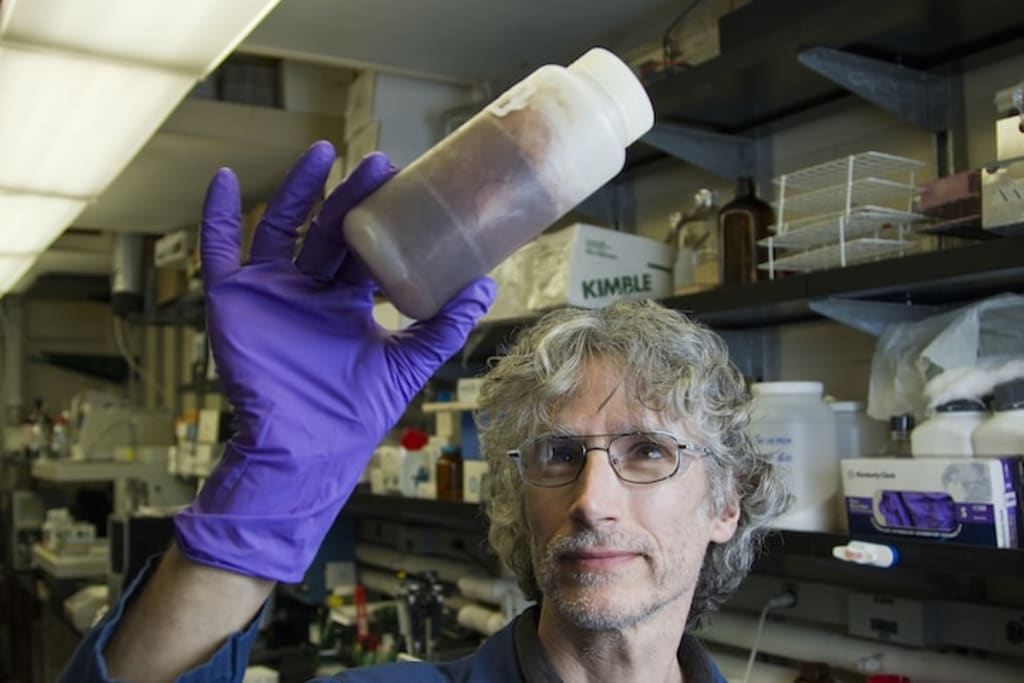Synthetic FAD Analogues: A Revolutionary Breakthrough in Vitamin B12 Cofactor Research
Article On Technology

Introduction :
Researchers from the Indian Institute of Science Education and Research, Pune, and the Indian Institute of Technology, Gandhinagar, have achieved a groundbreaking milestone in vitamin research by developing synthetic analogues of flavin adenine dinucleotide (FAD), an essential cofactor of Vitamin B12. These synthetic FAD molecules mimic the functions of natural FAD, playing a crucial role in oxidation-reduction reactions within enzymes. This remarkable breakthrough opens up new frontiers in various domains, including industrial processes, drug development, and the elucidation of diseases linked to FAD deficiency.
Unveiling the Synthetic FAD Analogues:
The research team utilized chemical and enzymatic methods to synthesize artificial FAD nucleobase analogues. Unlike naturally occurring FAD, which consists of adenine monophosphate and flavin mononucleotide connected by a pyrophosphate bond, these analogues incorporated alternative nucleobases, such as guanine, cytosine, and uracil. Through rigorous testing, the team demonstrated that these synthetic FAD analogues effectively bind to enzymes and perform redox reactions akin to their natural counterpart.
Enhancing Enzyme Efficiency and Functionality :
The development of synthetic FAD cofactor analogues brings significant advantages, particularly in enhancing enzyme efficiency. By studying the functioning of FAD-utilizing enzymes in the presence of these synthetic analogues, researchers gain valuable insights into enzyme mechanisms and can subsequently optimize their performance. This advancement paves the way for the development of novel enzymes capable of executing previously unexplored functions, thereby revolutionizing fields such as synthetic biology and cell biology.
Unraveling the Mysteries of FAD-Related Diseases :
The advent of synthetic FAD cofactors presents a unique opportunity to unravel the underlying mechanisms of diseases associated with FAD deficiency. By employing these artificial analogues, scientists can delve deeper into cellular metabolism and explore the intricate interplay between FAD-utilizing enzymes and various physiological processes. This enhanced understanding may lead to the development of targeted therapies for diseases linked to FAD deficiencies, offering new hope for patients suffering from such conditions.
Accessible Synthesis Methods :
The researchers successfully devised efficient chemical and enzymatic routes for synthesizing FAD nucleobase analogues. These synthesis techniques enable the production of analogues both outside and within living cells, enhancing accessibility for further exploration and utilization of artificial FAD cofactors in diverse scientific domains. Such advancements expand the scope of research and application possibilities, facilitating breakthrough discoveries and innovations.
The Future of Artificial Cofactor Analogues:
The development of synthetic cofactor analogues represents a rapidly advancing field of research. As scientists continue to investigate the functions and applications of artificial cofactor analogues, their significance is expected to grow exponentially. The utilization of these analogues holds immense potential for advancing synthetic biology, cell biology, and related disciplines. With ongoing research and exploration, artificial cofactor analogues are poised to play a pivotal role in expanding scientific knowledge, driving innovative discoveries, and revolutionizing various scientific and industrial arenas.
The discovery of synthetic FAD analogues as replacements for natural FAD marks a significant milestone in vitamin research. These analogues' ability to bind to enzymes and facilitate redox reactions unlocks new possibilities in industrial processes, drug development, and the study of cellular metabolism. Promising a bright future for synthetic biology and beyond, these advancements hold immense potential in improving enzyme efficiency, unraveling the mechanisms of FAD-related diseases, and driving advancements in various scientific and industrial fields. The development of synthetic cofactor analogues represents a remarkable achievement that is set to shape the landscape of scientific research and applications.
One of the key areas where synthetic FAD analogues can make a significant impact is in enhancing enzyme efficiency and functionality. Enzymes are fundamental to countless biological processes, and their efficiency can be crucial in various industrial applications. By studying the behavior of FAD-utilizing enzymes in the presence of synthetic analogues, researchers can gain valuable insights into the intricate mechanisms underlying enzyme function. This knowledge can be utilized to optimize enzyme performance, leading to more efficient and effective enzymatic reactions.
Moreover, the development of novel enzymes capable of utilizing synthetic FAD analogues opens up a world of possibilities. With a deeper understanding of how FAD cofactors interact with enzymes, scientists can design and engineer enzymes with tailored functions. These engineered enzymes can perform new and unique tasks, expanding the boundaries of what is achievable in fields such as biotechnology, pharmaceuticals, and biofuels. The ability to fine-tune enzyme activity through the use of synthetic FAD analogues may lead to breakthroughs in areas such as enzyme-based therapies, sustainable energy production, and the synthesis of valuable compounds.
Another compelling aspect of synthetic FAD analogues is their potential to shed light on the underlying mechanisms of FAD-related diseases. FAD deficiencies are associated with a range of health conditions, including metabolic disorders and neurological diseases. By utilizing artificial analogues, researchers can investigate the impact of FAD deficiency on cellular metabolism and understand how it contributes to the development and progression of these diseases. This knowledge may pave the way for targeted therapies and interventions to alleviate the symptoms and improve the quality of life for affected individuals.
The accessibility of the synthesis methods for artificial FAD analogues further enhances their potential applications. The researchers have successfully devised efficient chemical and enzymatic routes for synthesizing these analogues, enabling their production both outside and within living cells. This accessibility opens up avenues for further exploration and utilization in diverse scientific fields. Scientists can now investigate the behavior of synthetic FAD analogues in various cellular contexts, providing a deeper understanding of their interactions and applications.
Looking ahead, the future of artificial cofactor analogues appears promising. As researchers delve deeper into the functions and applications of synthetic FAD analogues, the possibilities for their utilization will expand exponentially. This rapidly growing field of research holds great potential for advancements in synthetic biology, cell biology, and related disciplines. By harnessing the power of synthetic FAD analogues, scientists can continue to push the boundaries of scientific knowledge, leading to transformative discoveries, innovative technologies, and improved human health.
Conclusion :
The development of synthetic FAD analogues represents a revolutionary breakthrough in vitamin B12 cofactor research. These analogues mimic the functions of natural FAD, providing new opportunities to enhance enzyme efficiency, unravel the mysteries of FAD-related diseases, and drive advancements in various scientific and industrial fields. With ongoing research and exploration, synthetic cofactor analogues are poised to play a pivotal role in shaping the future of synthetic biology, cell biology, and beyond. The exciting potential of these analogues offers a glimpse into a world where the boundaries of scientific knowledge and innovation are continually pushed, opening up new frontiers in human health and technological advancements.
About the Creator
Devendra Singh
I am a professional writer and I have good concept and work experience in writing work.






Comments
There are no comments for this story
Be the first to respond and start the conversation.